AI summit brings Elon Musk and world leaders to Bletchley Park
- Published
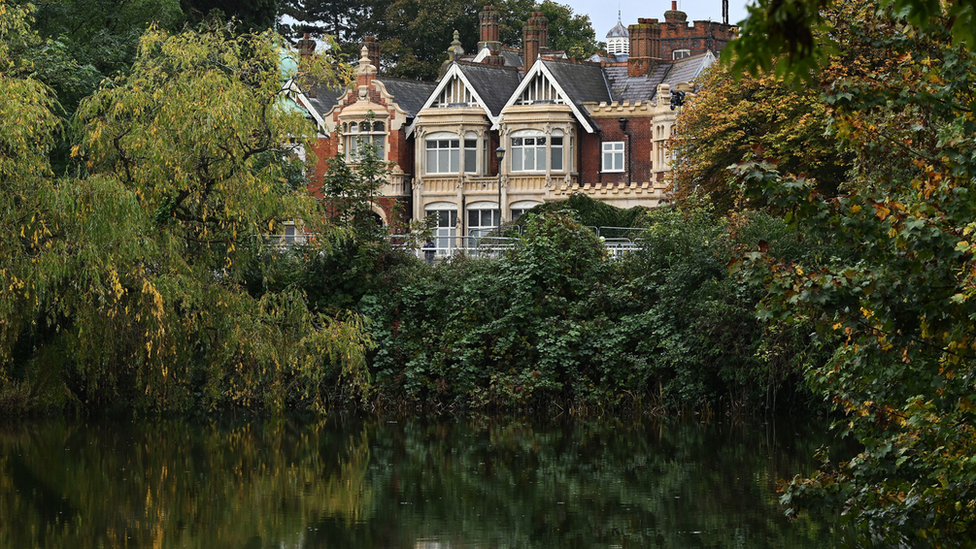
The two-day summit will be held at Bletchley Park, near Milton Keynes, where codebreakers hastened the end of the Second World War
This week political leaders, tech industry figures and academics will meet at Bletchley Park for a two-day summit on artificial intelligence (AI). The location is significant as it was here that top British codebreakers cracked the "Enigma Code", hastening the end of World War Two. So what can we expect from this global event?

Who is attending the AI summit at Bletchley Park?
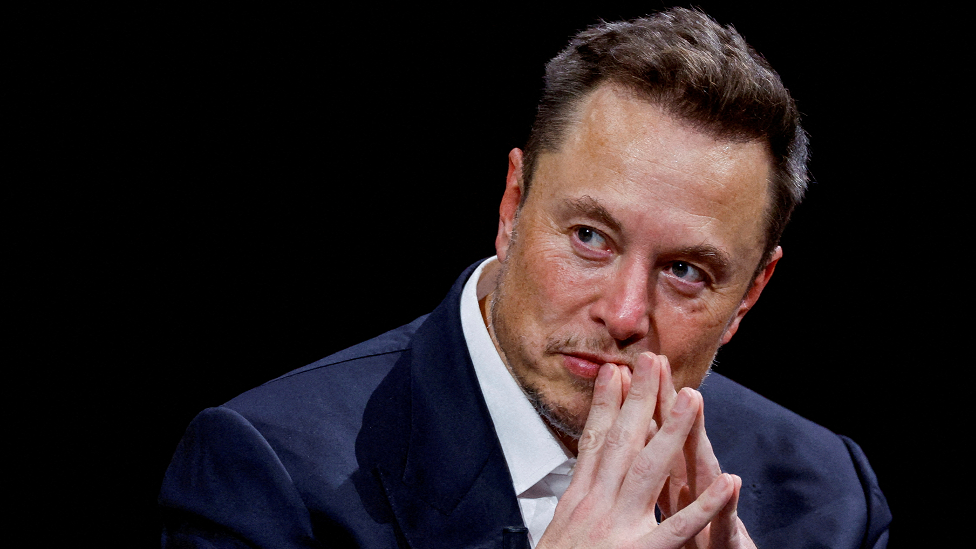
Elon Musk and Rishi Sunak will take part in an interview together on Thursday
There is no public attendee list, but some well-known names have indicated they will appear.
About 100 world leaders, leading AI experts and tech industry bosses will attend the two-day summit at the stately home on the edge of Milton Keynes.
The US Vice President, Kamala Harris, and European Commission (EC) President Ursula von der Leyen are expected to attend.
Deputy Prime Minister Oliver Dowden told BBC Radio 4 that China accepted an invite, but added: "you wait and see who actually turns up".
Tech billionaire Elon Musk will attend ahead of a live interview with UK Prime Minister Rishi Sunak on Thursday evening.
The BBC also understands Open AI's Sam Altman and Meta's Nick Clegg will join the gathering - as well as a host of other tech leaders.
Experts such as Prof Yann LeCun, Meta's chief AI scientist, are also understood to be there.
The government said getting these people in the same room at the same time to talk at all is a success in itself - especially if China does show up.

What will be discussed and why does it matter?
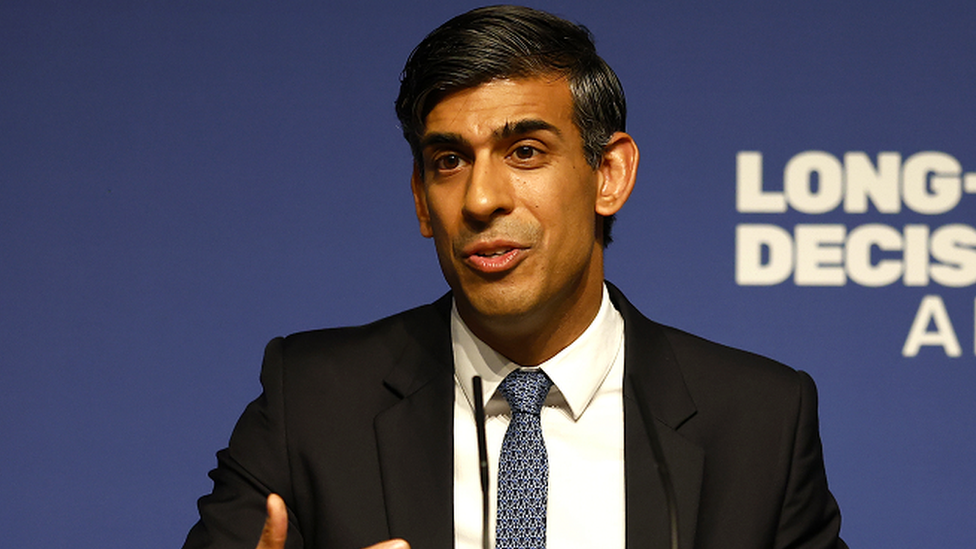
Earlier this week Prime Minister Rishi Sunak warned AI could help make it easier to build chemical and biological weapons
The government has said the purpose of the event is to consider the risks of AI and discuss how they could be mitigated.
These global talks aim to build an international consensus on the future of AI.
There is concern frontier AI models pose potential safety risks if not developed responsibly, despite the potential to cause economic growth, scientific progress and other public benefits.
Some argue the summit has got its priorities wrong.
Instead of doomsday scenarios, which they believe is a comparatively small risk, they want a focus on more immediate threats from AI.
Prof Gina Neff, who runs an AI centre at the University of Cambridge said: "We're concerned about what's going to happen to our jobs, what's going to happen to our news, what's going to happen to our ability to communicate with one another".
Professor Yoshua Bengio, who is considered one of the "Godfathers" of AI, suggested a registration and licensing regime for frontier AI models - but acknowledged that the two-day event may need to focus on "small steps that can be implemented quickly."

What are the police doing?
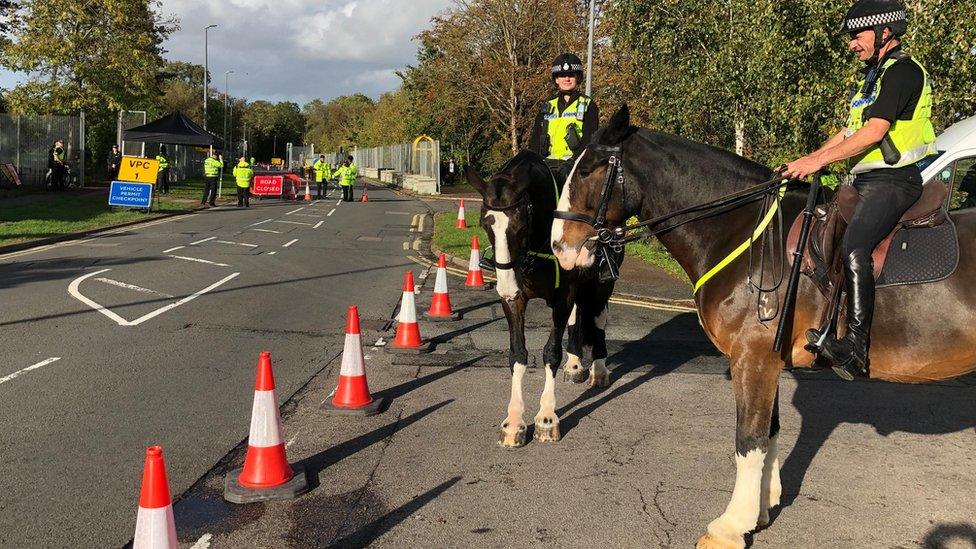
Police have increased their presence in the run up to the world event
Thames Valley Police has dedicated several resources to the event, providing security to both attendees and the wider community.
Those resources include the police's mounted section, drone units, automatic number plate recognition officers and tactical cycle units.
The teams will assist the increased police presence on the ground ahead of the AI Summit.
People have been encouraged to ask officers any questions or raise any concerns when they see them.
Local policing area commander for Milton Keynes, Supt Emma Baillie, said she expected disruption to day-to-day life in Bletchley but hoped it would be kept to a minimum.
"As is natural, we rely on our community to help us," she said.
"Bletchley has a strong community, and I would ask anybody who sees anything suspicious or out of the ordinary, to please report this to us."
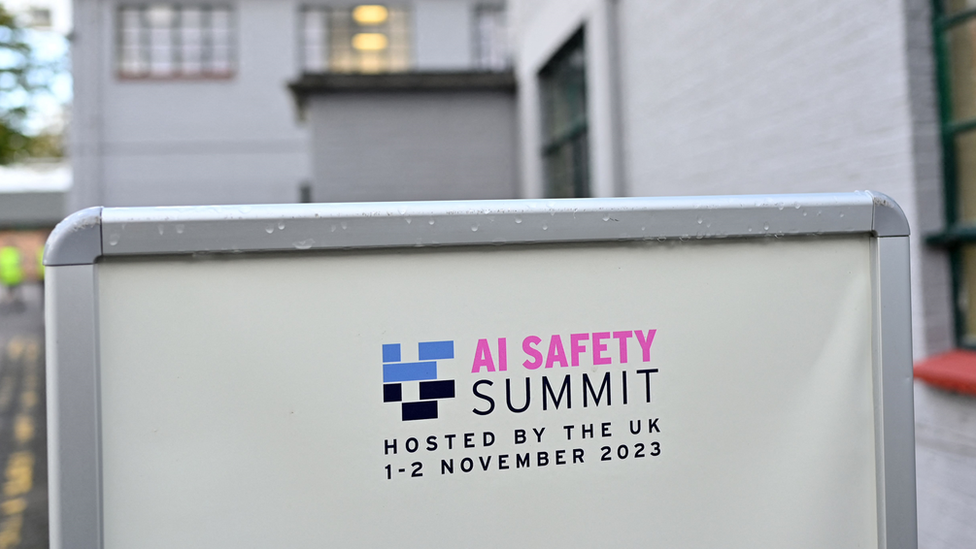
Security around the global event will be paramount

What is Bletchley Park famous for?
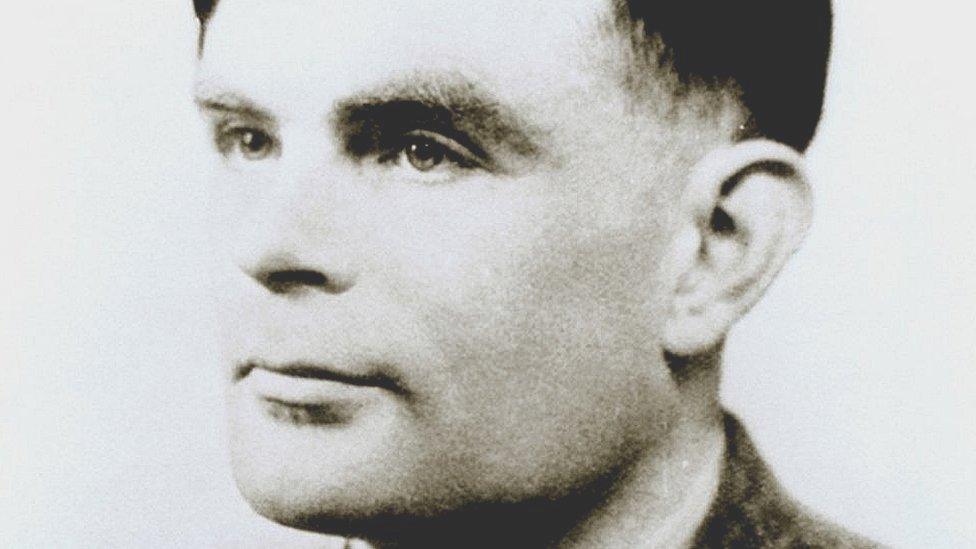
Alan Turing played a key role as part of the codebreaking team at Bletchley Park
The Victorian mansion at Bletchley Park served as the secret headquarters of Britain's codebreakers during World War Two.
Coded messages sent by the Nazis, including orders by Adolf Hitler, were intercepted and then translated by the agents.
Mathematician Alan Turing developed a machine, the bombe, that could decipher messages sent by the Nazi enigma device.
By 1943, Turing's machines were cracking 84,000 messages each month - equivalent to two every minute.
The work of the codebreakers helped give the Allied forces the upper hand and their achievements have been credited with shortening the war by several years.

How will it affect Bletchley Park itself?
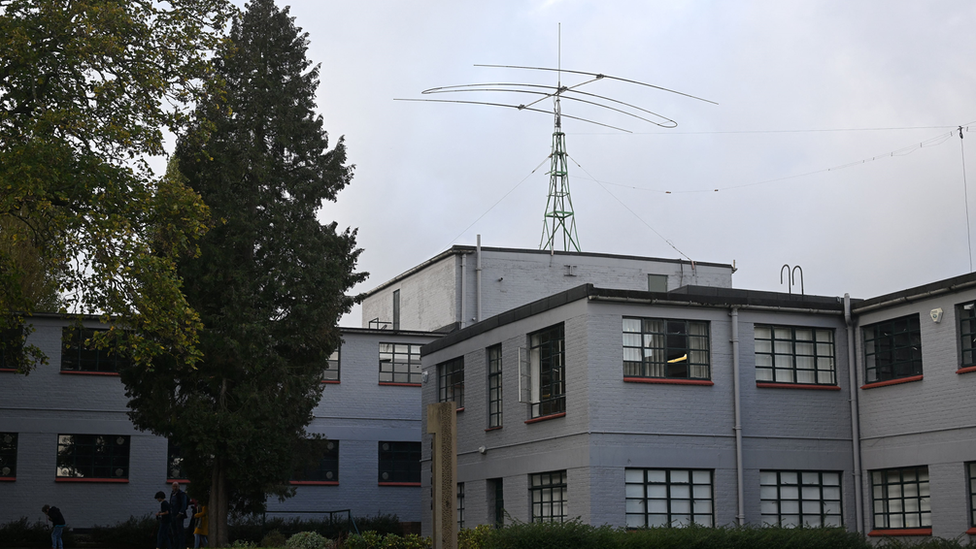
Blocks A and B in Bletchley Park near Milton Keynes, where Britain's finest minds worked during World War Two
Ian Standon, chief executive of Bletchley Park, said it was a "huge privilege and honour to be selected as the location for this very important summit."
The museum has had to close for a week until Sunday while the event takes place.
Temporary structures have appeared over recent weeks to host the many visitors for the summit.
Mr Standon praised his team for their hard work in preparing for the event, especially when dealing with added security over the next couple of days.
"We're in sort of security lockdown but that's a very small price to pay for the huge amount of publicity we're going to get out of this particular project," he said.
"For us at Bletchley Park this is an opportunity to put the place and its story on the world stage and hopefully people around the world will now understand and recognise what Bletchley Park is all about."

Follow East of England news on Facebook, external, Instagram, external and X, external. Got a story? Email eastofenglandnews@bbc.co.uk , externalor WhatsApp 0800 169 1830
Related topics
- Published24 August 2023
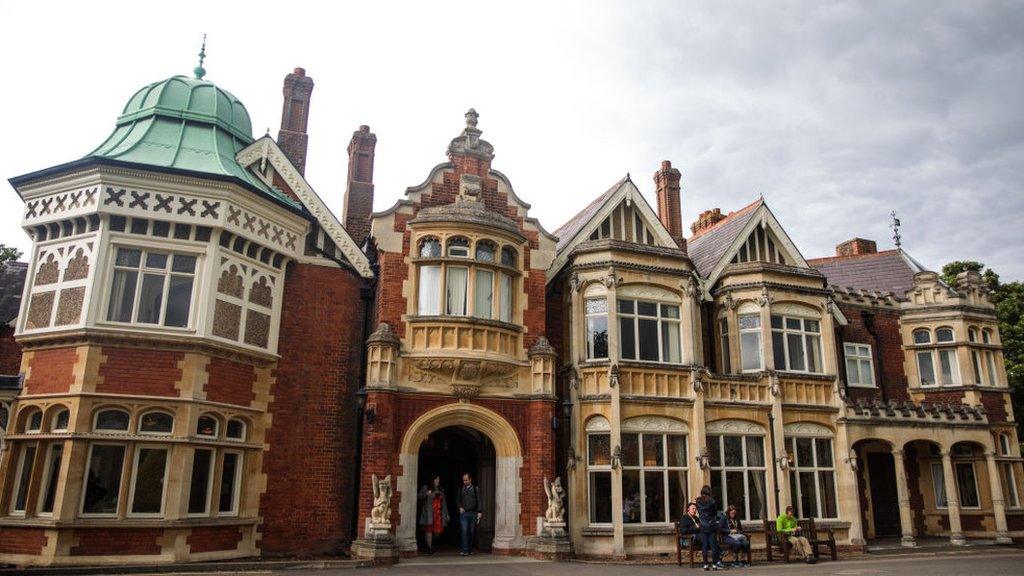
- Published26 October 2023
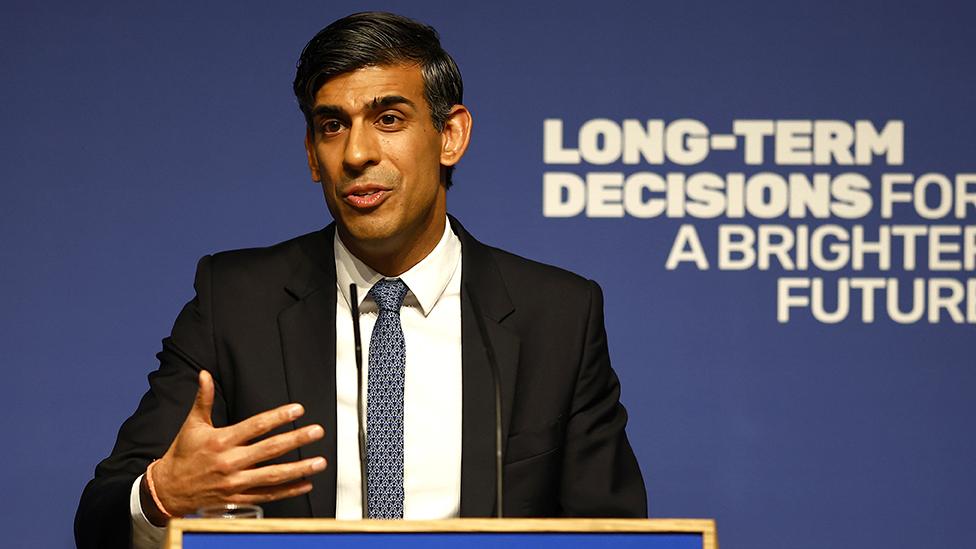
- Published31 October 2023
